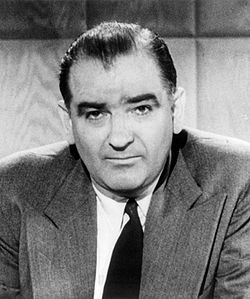Hurray. Well, in a meta sense, we know 3 of the 4 panel members today Michael McKean, Wes Moore, and Kimberly Dozier. I predict that the question will not be whether the U.S. should be a global bully, but where with all of those tempting targets like Ukraine, Syria, Iran, Nigeria, and Korea just waiting for a little “suck on this.”
We needed to go over there, basically, and take out a very big stick right in the heart of that world and burst that bubble…. What they needed to see was American boys and girls going house to house from Basra to Baghdad and basically saying “Which part of this sentence don’t you understand? You don’t think we care about our open society? You think this bubble fantasy, we’re just going to let it grow? Well, suck on this!” That, Charlie, is what this war was about. We could have hit Saudi Arabia! It was part of that bubble. We could have hit Pakistan. We hit Iraq because we could.
Who says our elite media is full of genocidal maniacs?
Keeping it 100 Larry? Suck on this-
Continuity
HIHOL
What? Hebrew International House Of Latkas. This is a Billion dollar franchise opportunity I’m telling you.
This week’s guests-
The Daily Show
- Monday 2/9: Patricia Arquette
- Tuesday 2/10: David Axelrod
- Wednesday 2/11: Colin Firth
- Thursday 2/12: TBA
I dunno. Is Thursday something besides Abraham Lincoln’s birthday? Still no guest.
Patricia Arquette will be on promoting… Boyhood? That’s getting a little old though Oscar season is right around the corner. CSI: Cyber is slated to debut March 4th so there is that I suppose (oh, and if you want a hack toolkit let me recommend DEFT, Digital Evidence & Forensics Toolkit, currently in version 8.2. Your target computer will have to support a DVD though).
Other than that the question is how will Jon handle the Brian Williams scandal.
Jon Stewart’s Brian Williams dilemma: How will “Daily Show” handle a friend becoming a punchline?
by Sophia A. McClennen, Salon
Monday, Feb 9, 2015 08:30 AM EST
Of all TV news icons to fall, though, Williams is in a unique spot. Williams, perhaps more than any other TV news anchor working today, has been particularly visible in popular culture. Williams has consistently attempted to court a younger audience and cultivate a “hip” vibe by making regular appearances on late night comedy. He has been on David Letterman’s show numerous times, he appeared on “Weekend Update” on “Saturday Night Live,” and he has made appearances on Conan O’Brien’s show as well as on “30 Rock.” In each of these cases he has traded his gravitas as a news anchor for laughs and for a chance to reach a wider audience.
But now as we reflect on what the revelations of his exaggerated experiences in Iraq (and possibly elsewhere) mean for his career, it is worth wondering what we can learn about Williams’s special connection to comedy. Certainly in hindsight these stunts reveal a degree of parody and performance that are much less funny in light of his diminished integrity.
One of the best examples of this heightened parody is his repeated appearances on “Late Night with Jimmy Fallon.” A few months after Fallon stepped in as host in 2014, his staff created a mash-up of Williams where he appeared to rap to hip-hop. The show made a few of these mash up videos and they repeatedly went viral. But even funnier- and even weirder in light of recent events – are the “slow jams” Williams did with Fallon, where he read news to music and Fallon sang and made puns. The slow jam with Fallon was funny because it was a parody of Williams as a serious reporter. Now that we know the truth – that Williams was less serious and more egotistical – the slow jams seem more like examples of shameless self-promotion.
It is important to point out, though, that this story is about more than the inflated ego of one nightly news anchor. Instead, the decline of Williams needs to be read as part of the ongoing blurring of entertainment and news. TV news has long been in decline as a trusted source of information to the public. Numerous studies show that network news is decreasing as a source of information for the U.S. public, especially among younger viewers. Williams, who won a Peabody for his reporting on Katrina (reporting that is now also being called into question) may have been one of the most visible TV news journalists, but his presence as a public figure was nothing in comparison to TV anchor predecessors like Walter Cronkite and Dan Rather.
The real news below.

 On this day in 1950,
On this day in 1950,  On this day in 1828,
On this day in 1828,
Recent Comments